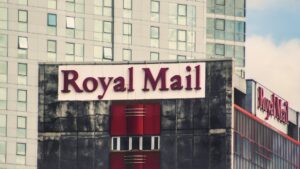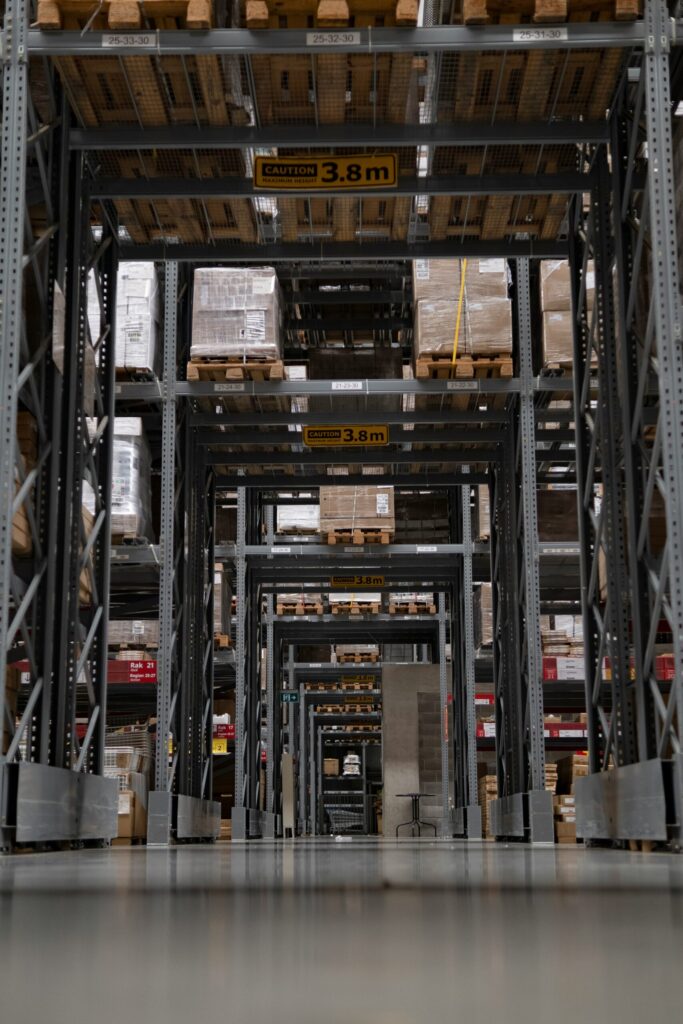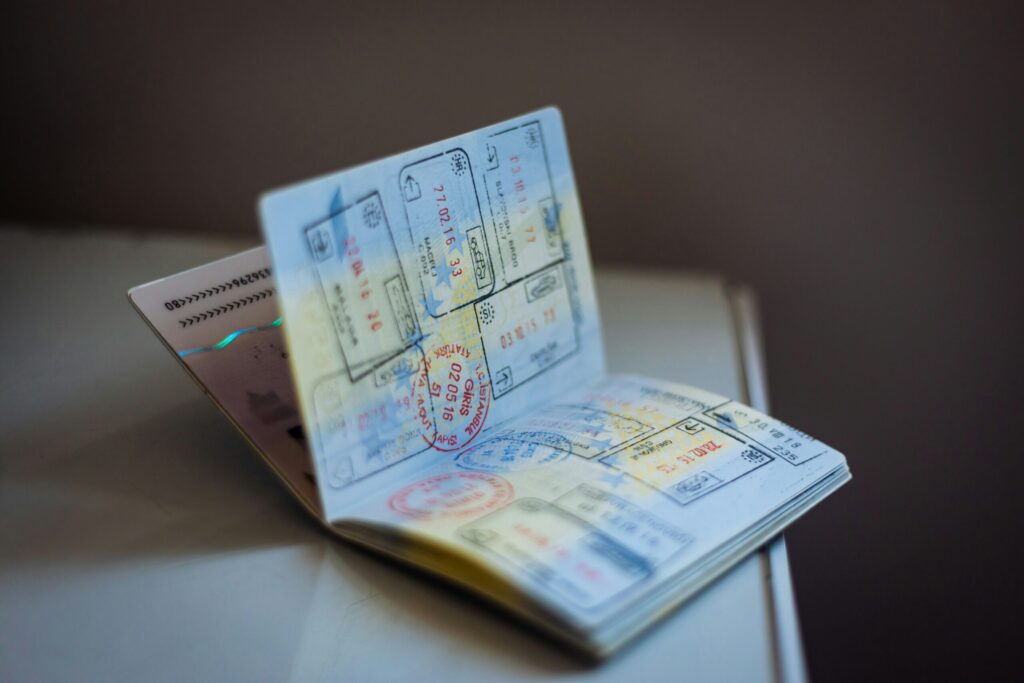 Royal Mail jobs in the UK can be a fantastic fit if you are searching for a dependable job with one of the most recognisable companies in the UK. They offer a diverse range of opportunities for individuals from all backgrounds. These range from delivering letters and packages nationwide to supporting operations behind the scenes in customer service and sorting facilities. Royal Mail jobs offer security, fair compensation, and the chance to truly make an impact in your community. This applies whether you are looking for a full-time career, part-time hours, or temporary work during busy times. Also, if you are searching for a stable, dependable position with a reputable British company with more than 500 years of history, Royal Mail is still one of the biggest employers in the UK.
Royal Mail jobs in the UK can be a fantastic fit if you are searching for a dependable job with one of the most recognisable companies in the UK. They offer a diverse range of opportunities for individuals from all backgrounds. These range from delivering letters and packages nationwide to supporting operations behind the scenes in customer service and sorting facilities. Royal Mail jobs offer security, fair compensation, and the chance to truly make an impact in your community. This applies whether you are looking for a full-time career, part-time hours, or temporary work during busy times. Also, if you are searching for a stable, dependable position with a reputable British company with more than 500 years of history, Royal Mail is still one of the biggest employers in the UK.
Read Also: Green Jobs in the UK
What is Royal Mail?
Royal Mail is the postal and courier service in Britain. It is a popular brand delivering mail all over the United Kingdom for more than 500 years. Post delivery to more than 3 million addresses is achievable with their 150,000 personnel. Royal Mail provides executive and frontline positions, as well as graduate programs and apprenticeships for new hires.
6 Top Royal Mail Jobs to Consider
-
PostPerson with Driving
More than just delivering letters, a Postperson with driving is a combination of self-reliance, outdoor recreation, and fostering community ties. Sorting mail and packages for your route is how a postperson who drives begins their workday at the local delivery office. After there, it travels to residences and workplaces on a Royal Mail van. While driving is necessary in certain rural places, there is also a lot of walking to do after parking and going door-to-door. Normal shifts begin early, typically around 6 or 7 a.m., and end early in the afternoon. For many people, that means they have the remainder of the day to themselves.
It is a physically demanding profession that’s perfect for someone who prefers working alone but also appreciates interacting with locals and working in a group. A complete UK driver’s license with a maximum of six penalty points is necessary for this role. Also, good physical condition because you will be walking a lot. Be reliable, amiable, and ready to work in any weather.
-
Mail Sorter
Royal Mail’s delivery business relies heavily on mail sorters. Every item, whether it be an internet order, a business letter, or a birthday card, goes through a sorting centre, which is where mail sorters are useful. To ensure that mail is correctly sorted and delivered to the intended location, this position involves working in one of Royal Mail’s sorting centres.
It is a practical job that keeps you busy and is essential to the UK’s connectivity. Here, you sort incoming and outgoing mail either manually or with the use of equipment. Also, you arrange packages and messages according to delivery route, destination, or postcode. Then you prepare mailbags for delivery offices to receive them. Helps keep the workplace tidy, safe, and orderly while working effectively to fulfil daily goals and deadlines.
-
Delivery Manager
The delivery manager is a key leader in overseeing the daily operations of deliveries throughout a specified region or delivery office. Think of them as the person who makes sure your post gets delivered on time every day, regardless of the weather. In addition to managing a group of postal employees (postmen and postwomen), they are also in charge of scheduling, sorting, and delivery, keeping things efficient, and ensuring that both employees and clients are taken care of. This position combines performance, monitoring, logistics, and people management. The delivery manager is in charge of operational reporting, performance goals, customer service escalations, resource planning (staffing, cars, routes), and health and safety compliance. They frequently serve as their teams’ initial point of contact and are crucial in maintaining Royal Mail’s standing as a dependable and helpful service provider in local communities.
-
Customer Operation Manager
A Customer Operations Manager (COM) at Royal Mail is essential to maintaining order behind the scenes and making sure that customers receive the level of service they anticipate. Consider them the folks who keep the mail delivery machine running in distribution depots, sorting offices, and local communities. A COM is in charge of overseeing delivery activities within a certain region. They are in charge of the teams of dozens or even hundreds of postal workers who sort and distribute mail. Their objective is to ensure that each letter, package, and parcel arrives at its destination on schedule. Monitoring delivery performance and meeting goals, overseeing local groups, such as frontline employees and managers of delivery offices, resolving concerns about customer complaints or delivery delays, Analysing data and performance indicators to identify issues and enhance services, ensuring constant adherence to health and safety regulations.
-
Parcelforce collection and delivery driver
Parcelforce collection and delivery driver, a division of the Royal Mail Group. They specialise in providing parcel delivery services both domestically and abroad. Also, Parcelforce manages larger things, faster delivery alternatives, and time-sensitive parcels. It is often for individuals and organisations who need something delivered swiftly and securely, whereas Royal Mail is best recognised for letters and small packages. Additionally, one of Parcelforce’s main products is the collection and delivery service. Particularly for those who lack the time to drop off products at a depot or post office, it makes delivering packages simpler and more convenient.
-
Class 1 Driver
A Class 1 Driver at Royal Mail is essential to ensuring that letters and packages arrive at their destination in excellent condition, safely, and on schedule. Instead of making doorstep deliveries, these drivers mostly do trunking work, which involves moving mail between postal centres, regional depots, and national hubs. They do this by operating huge articulated lorries, often known as heavy goods vehicles, or HGVs. Some of its responsibilities include Long-distance driving, frequently between Royal Mail warehouses or sorting facilities, Trailer loading and unloading, occasionally with depot employees’ assistance. Also, adhering to planned routes and schedules and ensuring that all mail is handled correctly and securely.
Read Also: Private Medical Insurance in the UK
What is the Hiring Process for Royal Mail Jobs?
-
Maintain a Positive Attitude
Royal Mail takes pride in providing excellent customer service with a warm and upbeat demeanour. Make an effort to show your excitement and optimism at every step of the hiring procedure. Maintaining a positive attitude is key in Royal Mail jobs.
-
Have brilliance
Express your curiosity and commitment to a job well done to the recruiters. Royal Mail aspires to be informed and creative to meet the demands of its customers both now and in the future.
-
Royal Mail Application Process
You must perform well at every stage of the application process to work at Royal Mail. This consists of an online application, an online psychometric test, and an assessment centre that includes a competency-based interview, an individual task, and a group activity.
-
Royal Mail Online Application
Applying online for a position through the Royal Mail Group Careers page is the first step in the recruiting process. Also, you must upload your resume for this. So, make sure it is current and customised to highlight experience that is pertinent to the role. A well-structured CV that succinctly highlights your talents can increase your chances of being shortlisted because the hiring team evaluates a lot of resumes. Generally, taking time on online applications is important for Royal Mail jobs.
-
Royal Mail Online Evaluation
You will receive an email with a link to complete an online assessment within 24 hours of completing your application. Royal Mail uses a timed online psychometric assessment to evaluate potential employees’ personality and cognitive abilities. This will be in sections, each of which will assess a distinct skill set. You will have 24 hours to finish the test after you receive your link. High-scoring applicants will advance to the assessment centre phase of the hiring process. Your role will determine the kinds of test questions you will face. But, the following sections might be on the test:
Verbal Reasoning in Royal Mail
The ability to quickly assimilate and comprehend written information is examined via verbal reasoning. Text passages and statements are in the questions. To determine if a given assertion is “true,” “false,” or “cannot say” based on the text, candidates evaluate and analyse the information provided for each question. The ability to work swiftly under pressure is essential. Furthermore, you will have a limited amount of time to respond to each question.
Logical Reasoning in Royal Mail
Problem-solving skills and the capacity to decipher nonverbal cues are under logical reasoning questions. They include patterns and shapes in spatial sequences. Finding the next figure from several multiple-choice selections and determining the rule or rules guiding each sequence will be your tasks. Timed logical reasoning questions are similar to other types of reasoning tests.
Royal Mail Personality Test
A candidate’s behavioural characteristics are put through personality tests to evaluate if they mesh well with the Royal Mail culture. Your motives, drivers, values, personality traits, and behavioural preferences are all revealed by multiple-choice questions. Following a series of statements, you will rate your level of agreement or disagreement. The evaluation will not be timed for this portion.
Test for Royal Mail Error
Checking Tests of error checking evaluate the capacity to quickly examine intricate data and spot errors. Office roles are frequently posted and sorted using them. You will have a specific amount of time to complete questions that require complete addresses or postcodes. You must compare the two pieces of information in each question and point out any differences.
Royal Mail Phone Screening Call
The recruitment team may call you as part of the shortlisting process once you’ve finished your online test. Reviewing your resume and discussing your pertinent experiences and abilities will be the purpose of this conversation. Additionally, you will get questions regarding your reasons for choosing to work with Royal Mail as well as the role you want to work in.
Assessment Centre for Royal Mail
You will be invited to a Royal Mail assessment centre day if your application, online test results, and, if relevant, your screening call result make you a shortlist. Depending on the situation, this can be online or in person. A competency interview, individual assignments, and a group exercise will all be part of the assessment centre. You may attend a follow-up interview for certain positions. The specifics of your hiring procedure will be communicated to you by your contact in the Royal Mail recruitment staff.
Group Exercise for Royal Mail
At Royal Mail, a strong sense of community is important. You will need to demonstrate your ability to work well with others. The group task is your chance to demonstrate how well you work with others to accomplish goals. A case study or discussion topic will be given to you, and you will have a set period to work as a team to develop an output.
Individual Exercise in Royal Mail
You will finish both a group task and an individual exercise for some roles. An analysis of a case study that examines a situation pertinent to your field of business will be in the assignment. During an interview, you can discuss your recommendations or give a presentation on them.
Royal Mail Role-play
You may perform a role-play exercise if you are applying for a managerial or customer-facing position with Royal Mail. After a few minutes to get ready, you will role-play a workplace scenario with a member of the recruitment team.
Read Also: Flight Attendant Jobs in UK- Everything You Need to Know
How to Get Royal Mail Jobs
The Royal Mail hiring process is competitive. You must thoroughly prepare for every step of the procedure. To improve your chances of success, adhere to these best practices.
-
Recognise the Hiring Process
The rigorous hiring procedure for Royal Mail jobs evaluates a candidate’s abilities in a wide range of areas, from case study analysis and teamwork to numerical reasoning and mistake checking. It takes good preparation time to perform well in every field. To adjust your preparation, it is crucial to understand precisely what to expect during the hiring process. Having a solid understanding of the various tasks will help you prioritise your study time around the parts you know will be the most difficult.
-
Conduct Research
Royal Mail is looking for motivated applicants who are eager to work for the firm. Show that you want to work for Royal Mail by reading about the company, the industry you have chosen, and any new developments, initiatives, or news items. You will be able to wow with your level of industry understanding and provide intelligent answers in your interview.
-
Practice Exams
You must receive a high score on the online psychometric test to qualify for the Royal Mail recruitment process. Practice exams are the most effective method of getting ready for this test. You must get ready for the test before sending in your Royal Mail application. Notably, you will only have 24 hours to finish it after you receive the email link. You can better understand the format, structure, and content of the various test styles for your assessment by completing timed mock exams. Additionally, it will help you improve your speed so that you can work precisely and swiftly in the real test.
Read Also: Amazon Warehouse Jobs UK-Complete Guide
Conclusion
Royal Mail has a long history spanning more than 500 years and continues to be a vital component of the UK’s delivery and communication network. Notwithstanding contemporary obstacles such as competition from private couriers, changing consumer preferences, and labour disputes, Royal Mail persists in adapting through digital innovation and service diversification. Its relevance is visible through the way it links communities, businesses, and people, especially in rural places. For Royal Mail to succeed in the future, it will be crucial to strike a balance between history and change as the postal industry changes.





